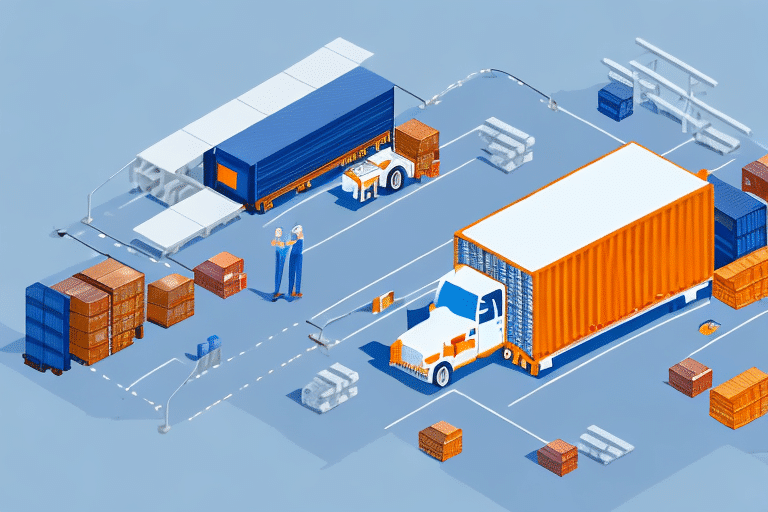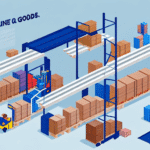Measuring Freight Bill Accuracy and Its Importance for E-Commerce Operations
In today's fast-paced e-commerce landscape, ensuring accurate freight billing is more crucial than ever. Shipping and handling costs are significant expenses that can quickly erode a business's profits. Inaccurate freight billing not only leads to financial losses but can also damage a company's reputation and erode customer trust. This article delves into the importance of precise freight billing in e-commerce, the repercussions of billing errors, common causes of inaccuracies, and strategies to mitigate them.
The Importance of Accurate Freight Billing in E-Commerce
Accurate freight billing is essential for maintaining a healthy bottom line in e-commerce operations. Shipping and handling constitute some of the largest expenses for online businesses, and even minor billing errors can result in substantial financial setbacks.
Financial Impact
Incorrect billing can lead to overcharging or undercharging customers, directly affecting profit margins. According to a Statista report, shipping costs account for approximately 10-15% of total sales in e-commerce, highlighting the significance of precision in billing.
Reputation and Customer Trust
Inaccurate billing can tarnish a business's reputation, leading to decreased customer trust and loyalty. Negative customer experiences resulting from billing errors may result in poor reviews and loss of repeat business.
Competitive Edge
Maintaining accurate billing practices ensures that e-commerce businesses remain competitive. Companies that manage their logistics and billing efficiently can offer better pricing and services, attracting more customers and fostering long-term relationships.
The Impact of Freight Billing Errors on E-Commerce Businesses
Freight billing errors can have a cascading effect on various aspects of an e-commerce business:
Customer Dissatisfaction and Legal Issues
Errors in billing can lead to disputes with customers, resulting in dissatisfaction and potential legal challenges. Addressing these issues consumes resources and can divert attention from core business activities.
Operational Inefficiencies
Inaccurate billing complicates expense tracking and budgeting, making it difficult for businesses to optimize their shipping strategies and control costs effectively.
Damaged Business Relationships
Persistent billing inaccuracies can strain relationships with shipping carriers, leading to less favorable rates and diminished service quality.
Common Causes of Inaccurate Freight Billing and How to Avoid Them
Understanding the root causes of billing inaccuracies is the first step toward mitigating them. Here are common issues and strategies to avoid them:
Human Error
Manual data entry is prone to mistakes. Implementing automated billing systems can significantly reduce the likelihood of human error.
Outdated Billing Systems
Legacy billing systems may lack the capabilities to handle complex shipping scenarios. Investing in modern, scalable billing solutions ensures adaptability and accuracy.
Complex Shipping Processes
The intricacies of dealing with multiple carriers, shipping options, and varying rates can lead to confusion and errors. Streamlining shipping processes and standardizing billing procedures can help mitigate these challenges.
Lack of Interdepartmental Communication
Failures in communication between departments, such as shipping and billing, can result in incomplete or incorrect data entry. Establishing robust communication channels ensures that all departments are aligned and informed.
Discrepancies in Carrier Rates
Carriers may have different billing systems and invoicing procedures, leading to inconsistencies. Regularly reviewing carrier contracts and staying updated with rate changes can prevent such discrepancies.
Benefits of Accurate Freight Billing for E-Commerce Operations
Emphasizing accurate freight billing yields numerous advantages:
Cost Optimization
Accurate billing allows businesses to identify shipping patterns and optimize their strategies, leading to reduced costs and improved profitability.
Enhanced Customer Satisfaction
Transparent and accurate billing fosters trust, enhancing customer satisfaction and loyalty.
Improved Carrier Relationships
Maintaining precise billing practices strengthens relationships with carriers, facilitating better rates and services.
Data-Driven Decision Making
Accurate billing provides reliable data, enabling businesses to make informed decisions regarding inventory management, pricing strategies, and market expansion.
Technological Solutions for Improving Billing Accuracy
Leveraging technology is pivotal in achieving billing precision:
Automated Billing Systems
Automated systems calculate shipping costs based on various factors such as weight, distance, and delivery speed, minimizing manual errors.
Artificial Intelligence and Machine Learning
AI-driven systems can analyze vast amounts of data to identify patterns, predict billing discrepancies, and optimize billing processes.
Freight Auditing Services
Third-party auditing services provide an additional layer of verification, ensuring that billing is accurate and compliant with industry standards.
The Role of Data Analytics in Freight Bill Accuracy
Data analytics plays a critical role in monitoring and improving billing accuracy:
Pattern Identification and Trend Analysis
Analyzing billing and shipping data helps identify trends and anomalies, enabling proactive measures to address potential issues.
Expense Tracking and Forecasting
Accurate data allows businesses to track expenses meticulously and forecast future shipping needs, facilitating better budgeting and resource allocation.
Optimizing Shipping Strategies
Insights derived from data analytics aid in refining shipping methods, selecting optimal carriers, and negotiating favorable rates.
Best Practices for Auditing and Reconciling Freight Bills
Implementing rigorous auditing and reconciliation practices ensures sustained billing accuracy:
Establish Clear Communication Channels
Maintaining open lines of communication with carriers and internal departments helps in swiftly resolving discrepancies and ensuring data accuracy.
Leverage Technology and Automation
Utilizing software solutions that automate the comparison of shipping rates and reconcile invoices with purchase orders reduces the risk of human error.
Regular Contract Reviews
Periodically reviewing shipping contracts and agreements ensures that businesses are receiving the best possible rates and terms.
Implement Comprehensive Training Programs
Training staff on best billing practices and the use of billing systems enhances overall accuracy and efficiency.
Case Studies: Successful E-Commerce Businesses Prioritizing Freight Bill Accuracy
Several leading e-commerce companies have demonstrated the value of accurate freight billing:
Amazon
Amazon has developed sophisticated billing systems that optimize shipping strategies, ensuring cost-effectiveness and reliability. Their investment in technology has kept them ahead of competitors and maintained high customer satisfaction levels.
Shopify
Shopify offers its merchants transparent and accurate shipping rates, coupled with real-time tracking updates. This approach has enhanced customer trust and streamlined operations for businesses using their platform.
Wayfair
Wayfair utilizes automated systems to audit freight bills, ensuring accuracy and identifying discrepancies swiftly. This practice has not only saved costs but also strengthened their relationships with shipping carriers.
Zulily
Zulily employs dedicated teams to analyze freight bills and negotiate rates with carriers, ensuring that they secure the best possible prices while maintaining service quality.
Future Trends in Freight Billing Technology and Their Impact on E-Commerce Operations
The freight billing landscape is evolving with advancements in technology:
Blockchain Technology
Blockchain offers a secure and transparent method for handling billing and shipping processes, reducing the likelihood of fraud and enhancing trust between parties.
Mobile Applications
Mobile billing solutions provide real-time updates on shipment status and allow businesses to manage billing operations on-the-go, improving flexibility and responsiveness.
Artificial Intelligence (AI)
AI-powered systems can further automate billing processes, predict potential errors, and offer insights for optimizing shipping strategies.
Integration with Internet of Things (IoT)
IoT devices can provide real-time data on shipment conditions, enabling more accurate billing based on actual delivery parameters.
Conclusion
Accurate freight billing is indispensable for the success of e-commerce businesses. By investing in advanced billing systems, embracing technological innovations, and adhering to best practices, companies can minimize billing errors, optimize shipping strategies, and enhance customer satisfaction. Staying informed about emerging trends and continuously refining billing processes will ensure that e-commerce operations remain competitive and profitable in an ever-evolving digital marketplace.






















